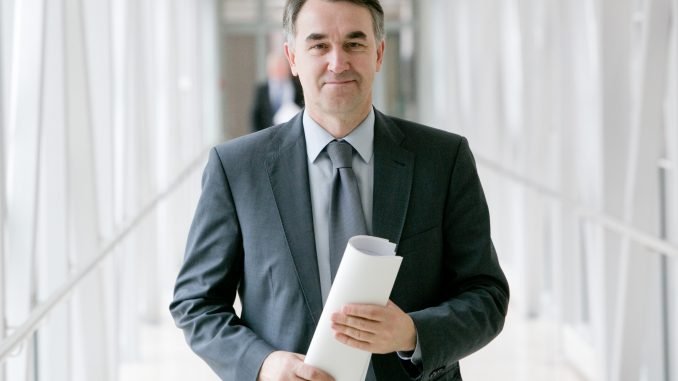
There is no clear answer to this question, and this happens probably for the first time in the entire history of the European Parliament elections. For the first time since 1979, the alliance of the centre-right (conservative) and centre-left (socialist) blocks in the European Parliament lost the majority of votes, MEP Petras Auštrevičius writes.
The record high voter turnout has brought more diversity and showed considerable support for the liberals and Greens. Meanwhile, the populists and ultra-nationalists, considering their plans, almost certainly experienced a setback. Populists definitely are not going to extinct, they will continue to seek ways of spreading their propaganda and cheap news.
However, there is no doubt that Brexit ‘vaccine’ did its job. Considerably grown liberal group in the European Parliament means more freedom and effective, sophisticated decisions for the Europeans. The liberal ALDE group, which I belong to, has never had as many members as it is going to have in the new European Parliament. The group will jump from 69 to 107/108 MEPs. If before the conservative and socialist parties did not have to look for partner support, situation will surely change now, making liberals especially important part of the future coalition.
Though it is less likely for the Greens to become a part of the coalition, their involvement cannot be excluded. It is clear that more than 200 million people gave their votes for the freedom of choice, important and faster decisions on climate change and energy issues.
The Europeans are not tired of the united Europe
The Europeans are not tired of the united Europe, they just want better results. I am certain that the liberals (maybe the Greens as well) will use the actual opportunity to turn their ideas into EU decisions, after the European Parliament elections . We need not only competitive economy and solid investment to sectors that determine our future (such as digital economy, application of scientific research and education) but also to keep the fundamental EU values, i.e. full respect for human rights, the rule of law and freedom of the media.
Liberals, together with partners in Europe, can and will create an open, tolerant and progressive environment. It is interesting to note that in the European political area, where the focus is currently on the negotiation between the main political blocks that won the elections, there are no powerful Green leaders across the EU countries to represent them.
It is odd, however, Lithuanian Prime Minister is not considered as a possible choice (in fact, there are no Green representatives in the negotiation group at all). Besides the new majority in the European Parliament after the European Parliament elections an agreement has to be made on the newly appointed heads of the key EU institutions. Searches and negotiations end on June 21, when the EU leaders meet in Brussels for the final confirmation. The decisions will not be easy here as well.
Even more consensus seeking
The difference of votes between the three biggest political forces does not allow domination of one or imposing its rules on another. It means that any new head of the EU institution, including the President of the European Commission, will have to seek for consensus based on a wide range of opinions. I personally see it as a very positive thing to do!
Paradoxically, the newly elected European Parliament stole the spotlight from the issues related to Brexit. It seems that this problem does not exist anymore, however, I have no doubt that it will be the first issue the new EU leaders are going to face.

Be the first to comment